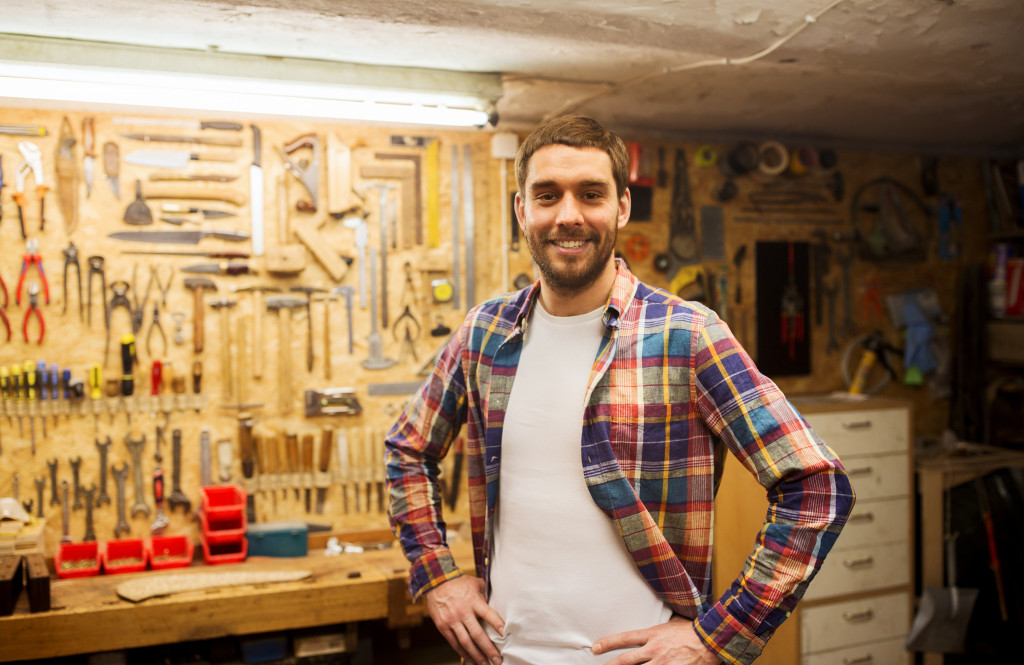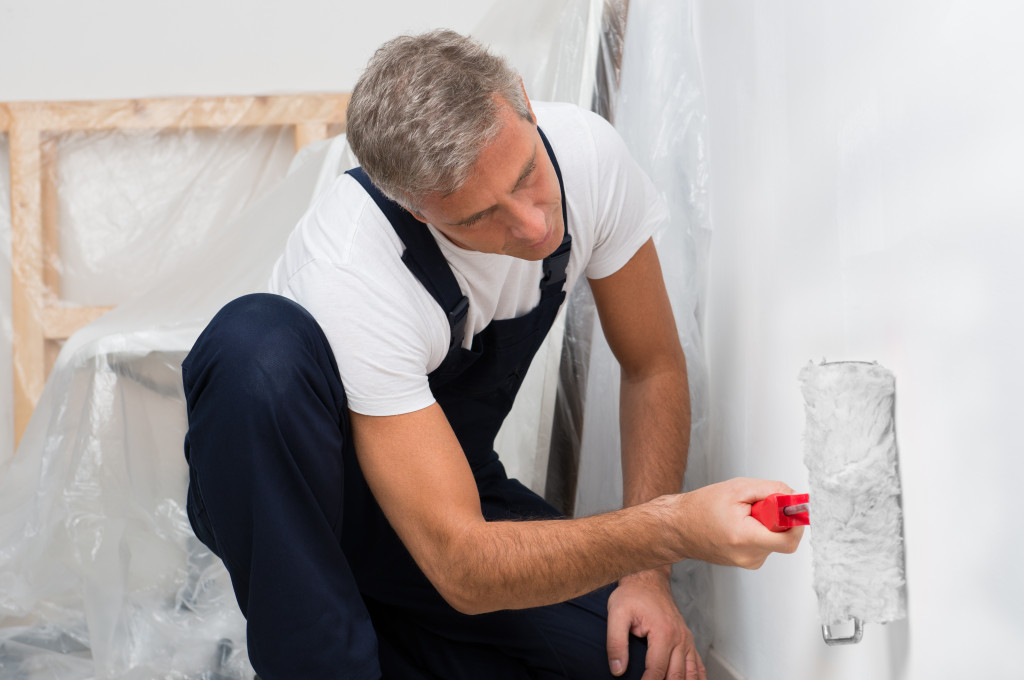- DIY homeowners can save up to 15% on the total cost of ownership over the life of their home.
- Preparation is vital to avoid costly mistakes; research, trial runs, observing professionals, and taking classes are essential steps.
- Necessary tools and equipment should be researched, acquired, and used safely.
- Professional help should be sought when needed; qualified electricians should always do electrical work.
- DIY home maintenance can be rewarding but must be approached with knowledge and caution for success.
Homeowners who embrace the DIY lifestyle can enjoy many benefits. Doing home maintenance and repairs yourself saves money on professional services and allows you to learn skills that will stay with you for life. Research has shown that those who take pride in their homes have higher satisfaction levels than those who do not. It’s been suggested that homeowners are more likely to stay longer in a house they’ve cared for personally.
According to the National Association of Home Builders, DIY-friendly homes (which involve minimal large-scale building projects) can save up to 15 percent of a homeowner’s total cost of ownership over the life of their home. Homeowners also benefit from learning valuable skills such as carpentry, plumbing, electrical work, and painting which can be used in future projects or repairs.
However, becoming a DIY homeowner will require many preparations, especially when avoiding mistakes that could cost time and money in the long run. Below are some of the most important practices to consider when taking on DIY projects around your home.
Learning and Mastering Basics
DIY homeowners need to take the time to learn and master the basics of home maintenance and repairs. Knowing how to carry out a task safely can prevent costly mistakes, and understanding the process leads to more incredible pride in a job well done. It also teaches basic home safety skills, such as working securely with ladders or other equipment.
The best starting steps in learning the basics are:
Research
Researching home maintenance projects is a significant first step in preparing for DIY work. Look into projects that match your skill level, read up on safe practices, and investigate what tools you may need. Don’t be afraid to ask questions of professionals or experienced DIYers to get an idea of what challenges you may face along the way.
Trial Runs
Even if you’re confident in your skills, practicing with trial runs is still crucial before beginning large-scale projects. This helps ensure you understand all the steps to complete a task correctly and safely. Before committing to a project, test different materials or methods on scrap wood or other inexpensive materials.
Observe Professionals
Whenever possible, observe contractors at work so you can gain an understanding of how various tasks are performed professionally. Ask questions about processes like cutting drywall or laying tile, so you’ll have better insight into what works best for a particular job and know why specific methods are used over others. Additionally, it’s an excellent opportunity for picking up valuable tips from those who have already successfully put them into practice.
Take Classes
Local stores often offer classes or workshops on home improvement topics; this is an excellent opportunity to learn more about specific repairs and gain hands-on experience that will help in future projects. These classes also provide access to experienced instructors offering advice throughout each session. They can guide how best to use specific tools or techniques while completing tasks at home.
Getting Necessary Tools and Equipment

DIY homeowners must invest in the necessary tools and equipment to complete their projects safely and efficiently. Investing a little money upfront will help save time and money over the long run, as having the right tool for the job will make it easier and quicker to complete any task. When selecting tools, look for those suitable for all everyday DIY tasks such as painting, carpentry, plumbing, and electrical work.
Some necessary tools and equipment include a drill or cordless driver, combination squares and levels, and safety glasses or goggles. A drill is essential for drilling holes into walls or other materials; it’s also great for driving screws into objects like furniture. Combination squares are necessary for measuring angles precisely when cutting materials such as plywood or drywall and can also be used to measure distances accurately. Safety glasses or goggles should always be worn when working with tools to protect your eyes from debris.
Similarly, dust masks are available to protect your respiratory system from particles in the air. Other essential items, such as utility knives, screwdrivers, and gloves, should never be overlooked. They’re necessary for precision tasks like woodworking or even more mundane jobs like changing out light switches.
Getting Professional Help

Of course, there will always be maintenance and repair tasks beyond the scope of DIY. In these cases, it’s always best to get professional help. However, ensure you understand what needs to be done and know the cost before hiring anyone.
One example is electrical work, which should generally only be carried out by a qualified electrician. DIY homeowners should never attempt to do electrical repairs as it can lead to severe injury or death. Always contact an emergency electrician for any electricity-related issues in the home.
Another example is plumbing. Plumbing repairs can get complicated and labor-intensive, so you must call a qualified plumber if you’re not confident in your skills. Many plumbing issues require special tools that are too expensive for the average homeowner.
Final Thoughts
DIY home maintenance and repairs can be rewarding and save money, but it’s essential to have the proper preparations before beginning any project. Take the time to learn basic skills, research projects, observe professionals at work, take classes when available, and get the necessary tools and equipment for the job. DIY homeowners should also not hesitate to call in a professional when needed. With proper preparation and an eye for safety, home maintenance can be an enriching experience.

